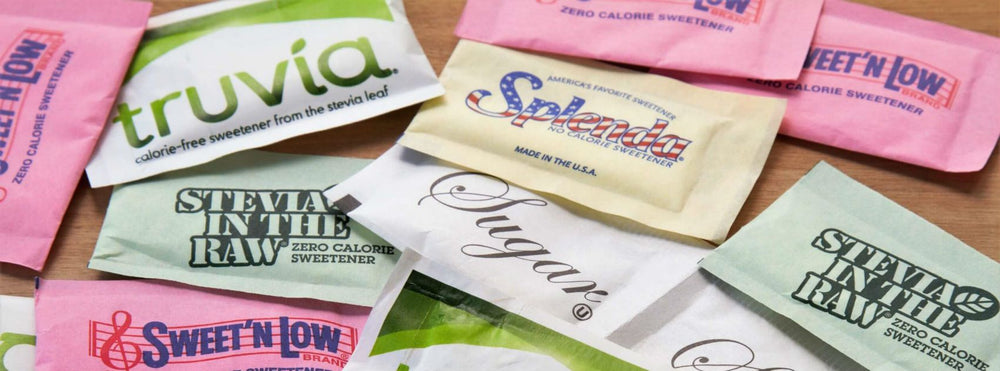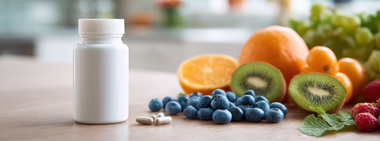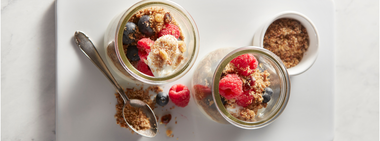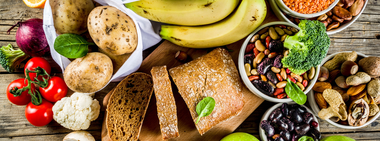If it’s a non-sugar sweetener, is it better for you?

So, there’s another zero-calorie sweetener at your local co-op. And, the name even sounds healthy: something ending in “ia.” It’s got to be better than sugar, right?
Wrong.
Even though many of these healthy-sounding sweeteners like Truvia and Stevia in the Raw are extremely low-calorie, they’re not necessarily as innocent as they sound.
For example, did you know that Truvia was developed through a partnership between Cargill and the Coca-Cola company? And that even though Truvia presents itself as a stevia-based sweetener, its actually made from Erythritol (a sugar alcohol), Rebaudioside A (a sweet compound isolated from the stevia plant, listed as "stevia leaf extract" on the label), and “Natural flavors” which are not specified.
Stevia in the Raw might sound like it’s made from ground up stevia leaves, but it doesn’t contain whole stevia leaves either! And this actually matters.
Real stevia leaves contain two sweet-tasting compounds, stevioside and rebaudioside A. Of the two, only stevioside is linked to health benefits like reduced blood sugar and blood pressure. However, Truvia and Stevia in the Raw contain only purified rebaudioside A, so neither sweetener has any special health benefits (other than calorie control).
And that calorie control can come with a price. There’s evidence that non-nutritive sweeteners can change the gut’s microbiome, blunting GLP-1 release. Huh and so what? GLP-1 is a gut hormone that helps control blood sugar levels after you eat. When you blunt GLP-1 you get dramatic increases in circulating blood sugar levels after meals. Bombard your cells with sugar often enough, and you eventually exhaust your pancreas. No wonder people who ingest artificial sweeteners are at the same risk of developing type 2 diabetes as those who consume a lot of added sugars!
The effects on the pancreas and insulin levels is why added sugars (even from honey) are a problem as well. They may not interfere with GLP-1, but they can overwhelm it. Circulating blood sugar triggers the body to make insulin, and insulin prompts our bodies to go into storage mode. That means our bodies start to churn out the storage form of cholesterol - LDL -- the kind you don’t want.
In fact, the only type of sweetener the body tends to handle well is the sugar that occurs naturally in fruits and vegetables. No company has been able to out-package nature: An orange contains just the right amount of pith and fiber to counteract that sugar as the body digests it. As soon as you start tinkering with it -- even by just squeezing the juice out -- those benefits disappear.
That’s why at Step One Foods we go above and beyond to ensure our products contain whole food ingredients with as little sweetening added as possible . Unlike some who rely on healthy-sounding added sugars such as brown rice syrup, we rarely need to add anything. Dried cranberries and blueberries as ingredients include apple juice concentrate because otherwise, the berries would be hard as rocks when you tried to eat them (trust us, we learned this the hard way). And we use only bittersweet chocolate, that inherently contains just enough sugar to make it palatable. That all accounts for six grams of added sugar in our cranberry pecan bar, four in our dark chocolate walnut and crunch bars, and two in our peanut butter bar.
But other than what’s part and parcel of the ingredients used to make our products, we don’t add ANY additional sweeteners. Which is why you may find our foods far less sweet than similar items found on grocery shelves.
Plus we do our very best to mimic nature my making sure any sweetness you get comes to you as part and parcel of a high fiber package that includes complex grains. It’s this very careful attention to product composition that’s allowed us to demonstrate measurable health improvements with use of our foods. Turns out, when you respect the complexity of nutrition, and favor nature as much as possible, you end up with better health. You can learn more about how Step One can help manage your blood sugar here.
So what should you pour over your next batch of Whole Oats and Walnut Pancakes? Try bananas, raspberries, peaches, even a dollop of yogurt. But if you really enjoy maple syrup – it’s OK. Just have the real stuff and don’t go crazy. A small amount of added sugar is OK: the World Health Organization recommends, ideally, no more than 25 grams per day.
But the big takeaway from this week’s blog? If it tastes too sweet to be true, it probably is.

Tested & Proven Results.
- Cardiologist formulated
- Supported by over 500 publications
- Clinically-proven, in a double-blind randomized trial with Mayo Clinic and The University of Manitoba
80% of participants lowered their cholesterol in just 30 days. With just two servings per day, Step One Foods offers a proven-effective way to naturally lower LDL (bad) cholesterol.
Get heart health tips and articles like this, delivered right to your email.
New articles every week.
You may also like...

Fiber Supplements vs. Fiber from Food – Is There a Difference?

You don’t need to avoid foods with cholesterol…except for these



